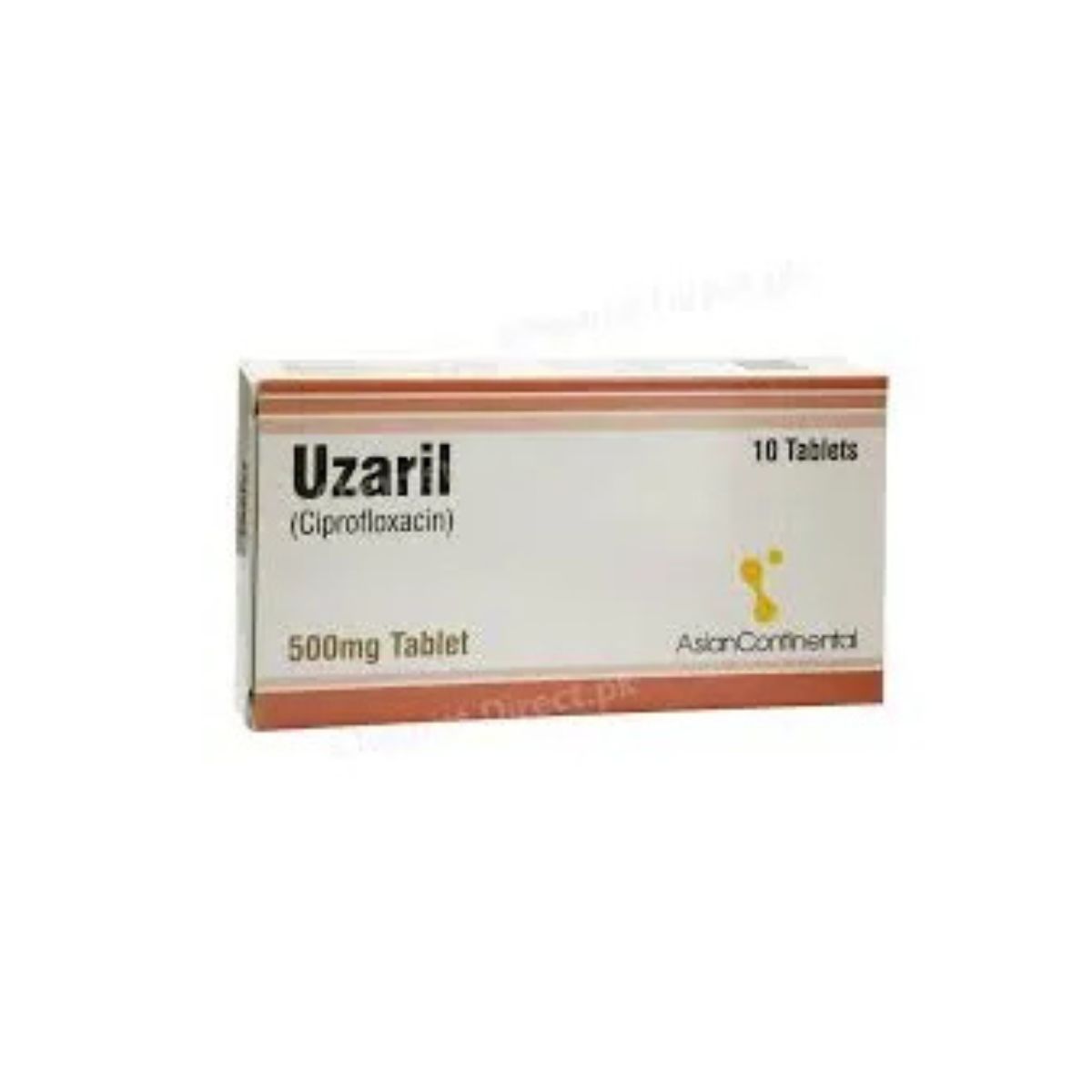Description
Description
Ciprofloxacin is a second generation fluoroquinolone antibiotic. This drug is active against many gram positive and gram negative bacteria. This drug performs its actions by binding to DNA gyrase and topoisomerase IV. Ciprofloxacin acts on alpha subunits of DNA gyrase and prevents its supercoiling and introduces double-stranded breaks into DNA and prevents its replication.
Ingredients
Ciprofloxacin
Drug Class
Fluoroquinolone antibiotic
Dosage Form
Tablet
Uses
Pneumonia, Chronic Obstructive Pulmonary Disease (COPD),Urinary Tract Infections (UTI), Plague, Typhoid Fever, Gonorrhea, Diarrheal infections, Bone and Joint Infections, Skin Infections, Chronic Prostate Infections, Sinusitis
Dosage
Dose must be taken according to doctor’s advice only; doses given below are suggested as supportive literature for better understanding in some areas of requirements. Adult dose: For acute sinusitis: 500mg orally after every 12 hours for 10 days. For mild to moderate bone & joint infections: 500mg orally after every 12 for ≥4-6 weeks For severe bone & joint infections: 750mg orally after every 12 hours for ≥4-6 weeks. For chronic bacterial prostatitis: 500mg orally after every 12 hours for 28 days. For infectious diarrhea: 500mg orally after every 12 hours for 5-7 days. For complicated intra-abdominal infections: 500mg orally after every 12 hours for 7-14 days. For mild to moderate lower respiratory tract infections: 500mg orally after every 12 hours. For severe to complicated lower respiratory tract infections: 750mg orally after every 12 for 7-14 days. For mild to moderate skin infections: 500mg orally after every 12 hours for 7-14 days. For severe to complicated skin infections: 750mg orally after every 12hr for 7-14 days. For acute and uncomplicated urinary tract infections: Immediate-release tablets/capsules, 250mg orally after every 12 hours for 3 days; extended-release tablets/capsules, 500mg orally after every 24 hours for 3 days. For mild to moderate urinary tract infections: 250mg orally after every 12 hours for 7-14 days. For severe or complicated urinary tract infections: 500mg orally after every 12 hours for 7-14 days. For urethral & cervical gonococcal infections: 250-500mg once orally. For anthrax infection: 500mg orally after every 12 hours for 60 days. For plague: 500-750mg orally after every 12 hours for 14 days. Child dose: For urinary tract infections including kidney infections: In children of age 1 to 17 years; 10mg/kg to 20mg/kg (maximum of 750mg per dose) orally every 12 hours for 10 to 21 days. For prevention of anthrax infection after exposure in children from birth to 17 years; 15mg/kg (max 500mg per dose) every 12 hours for 60 days. For Plague from birth to 17 years: 15mg/kg (maximum of 500mg per dose) every 8 to 12 hours for 14 days.
In case of Overdose
Overdose may cause nausea, vomiting, diarrhea and a pounding or irregular heartbeat. If a patient is epileptic then he may face seizures or fits. Kaolin or magnesium trisilicate could be used as an antidote for ciprofloxacin overdose; these antidotes would decrease the absorption of ciprofloxacin in case of oral ingestion.
Missed Dose
In case you missed any dose, take the next dose as soon as you remember, but don’t double your next dose to compensate for the missed one.
How To Use
Take this medicine orally with water. Crystalluria may occur as an adverse effect. Increased alkalinity of urine may contribute towards risks so the patient should keep himself hydrated along with use of this medicine.
When Not to Use
Should not be given to the patients who are hypersensitive to clarithromycin or any fluoroquinolone antibiotic. It may enhance muscle weakness in patients with myasthenia gravis so should not be taken in this case.
Side Effects
Unraveling the side effects lurking behind this product are the following:
- Nausea
• Diarrhea
• Lightheadedness
• Dizziness
• Headache
• Trouble sleeping
• Hypersensitivity reactions
• Arthralgia
• Asthenia
• Joint stiffness
• Tremor
Precautions & Warnings
This drug may enhance the risk for aortic aneurysm (bulge in the wall of the largest artery), so a patient should consult a doctor if he feels sudden chest, stomach, or back pain, trouble breathing, cough, or hoarseness.
Drug Interactions
The drug interactions with ciprofloxacin include:
Antacids (containing aluminum, magnesium) – Ciprofloxacin absorption can be reduced when taken with antacids.
Warfarin – Ciprofloxacin can enhance the effects of warfarin, increasing the risk of bleeding.
Theophylline – Ciprofloxacin can increase the levels of theophylline, potentially leading to toxicity.
Caffeine – Ciprofloxacin may increase the effects of caffeine, potentially leading to increased side effects.
CYP1A2 Substrates (e.g., clozapine, tizanidine) – Ciprofloxacin can increase the levels of drugs metabolized by CYP1A2, leading to potential side effects.
Methotrexate – Ciprofloxacin may increase methotrexate levels, increasing the risk of toxicity.
Probenecid – Probenecid can increase ciprofloxacin levels by inhibiting its renal excretion.
Cyclopropane – Ciprofloxacin can enhance the effects of cyclopropane, increasing the risk of seizures.
Non-Steroidal Anti-Inflammatory Drugs (NSAIDs) – Combining ciprofloxacin with NSAIDs can increase the risk of central nervous system stimulation and seizures.
Antiarrhythmic Drugs (e.g., quinidine, sotalol) – Ciprofloxacin may increase the risk of QT interval prolongation when used with antiarrhythmics.
Food Interactions
This drug may increase the effects of caffeine so avoid drinking coffee or eating chocolate in large amounts with this medicine. Take this drug before or after 2-4 hours of ingestion of dairy products, especially, milk.
Storage/Disposal
Store below 30°C. Protect from heat and sunlight.
Laboratory Screening
To scan for bacterial infection, go for; Blood Culture Test. To monitor organs performance before and with the use of this drug, go for the following tests: For liver; LFT, Ultrasound. For kidney; Renal Function Test, Ultrasound. For heart: ECG.



Reviews
There are no reviews yet.